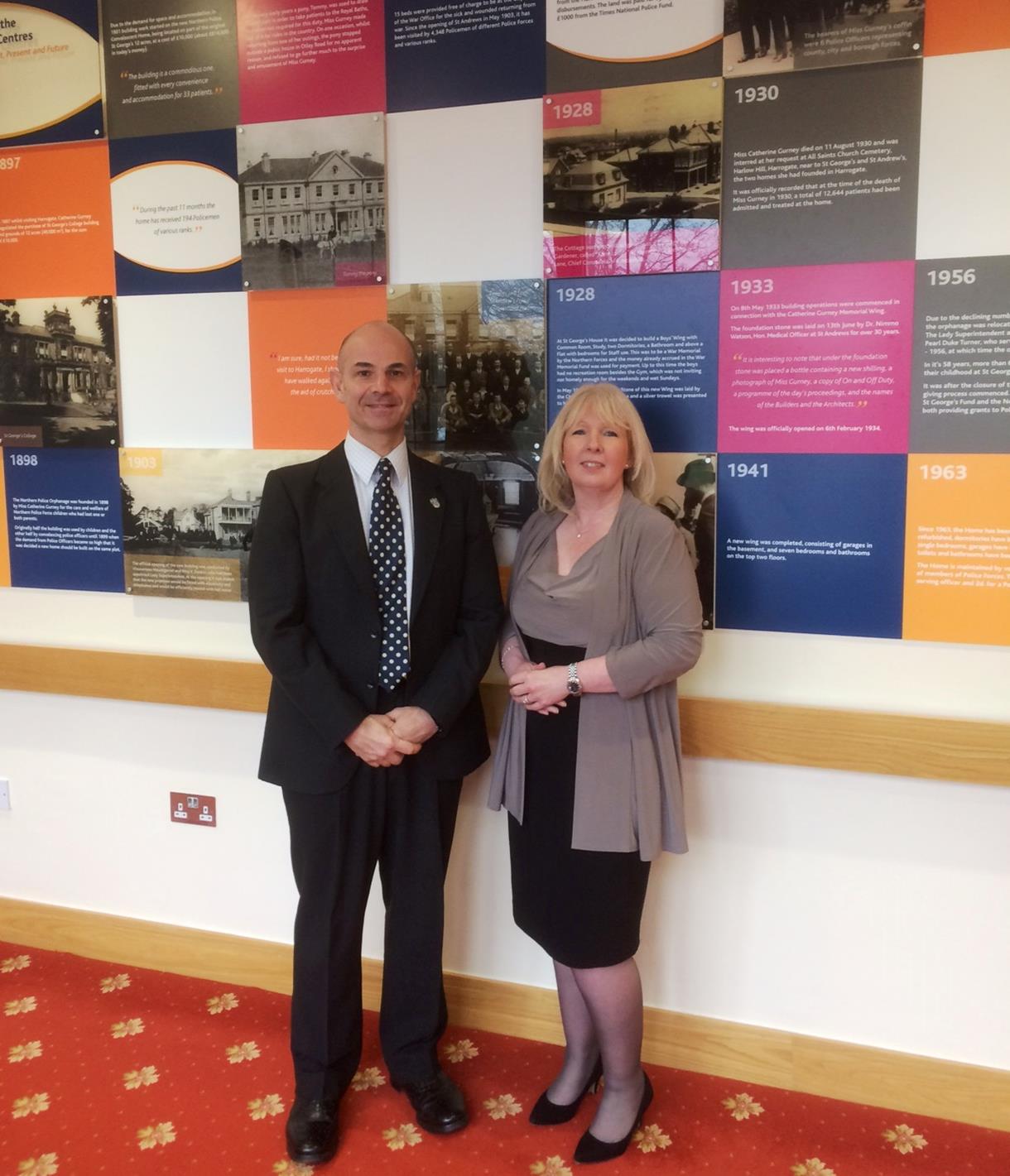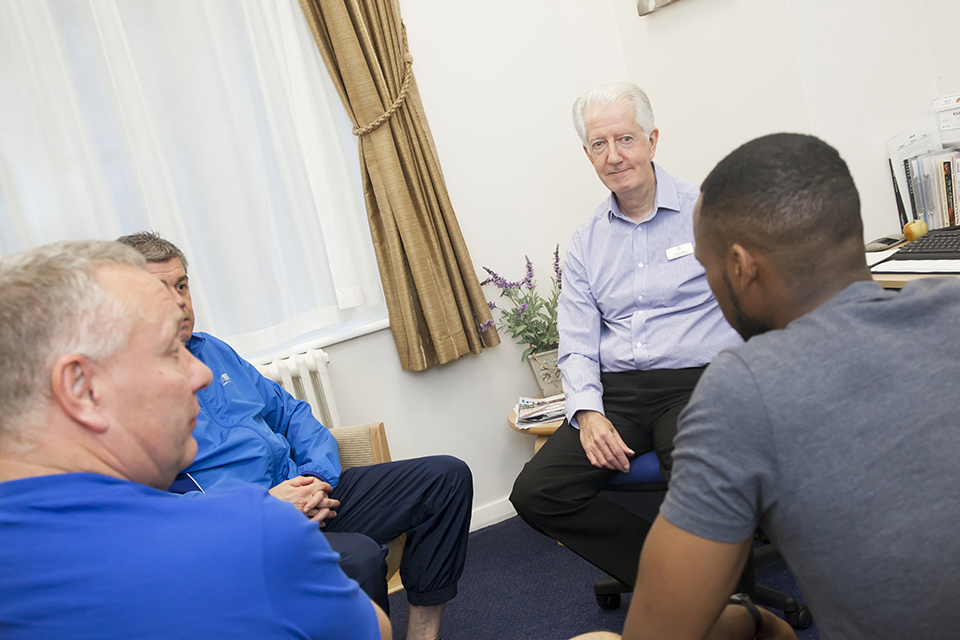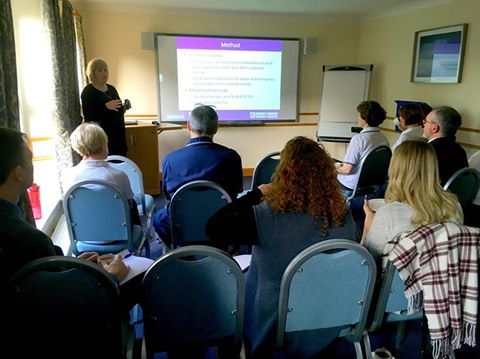Well here we go, first blog of 2017 and it marks a period where we have hit the ground running after the Christmas closure. I hope that all our patients who have already been treated at both Centres this year notice some improvements that we have made within our Centres over the last month, both within the décor and other facilities, all of which are designed to improve both how we do business, and how we look after our patients. This is very much an ongoing process, and the challenge for us at the PTC is to select the time to make the improvement, for it to be cost effective, and for it not to impact unduly on the patients, and I hope that we have managed to achieve that with our recent improvement programme.
 We have already welcomed a variety of visitors to the PTC this year including a number of representatives from Force Occupational Health and Human Resources departments and Well Being representatives. These are key individuals within their own forces, and routinely at the forefront of engaging with our patients in processing and advising on their applications. Time is always well spent in welcoming these visitors to the PTC for a visit, firstly to ensure that they understand how we do our business, and secondly how they can best play their role in supporting and streamlining an individual patient’s application to attend the PTC for treatment.
We have already welcomed a variety of visitors to the PTC this year including a number of representatives from Force Occupational Health and Human Resources departments and Well Being representatives. These are key individuals within their own forces, and routinely at the forefront of engaging with our patients in processing and advising on their applications. Time is always well spent in welcoming these visitors to the PTC for a visit, firstly to ensure that they understand how we do our business, and secondly how they can best play their role in supporting and streamlining an individual patient’s application to attend the PTC for treatment.
We have already held 2 Trustee board Meetings this year, and are reflecting on some of the big issues within the police service, and how this might affect how we conduct our business at the PTC in the future.
Recent statistics published by the Home Office suggest that almost half of serving police officers are now aged over 40, and this can mean that we have a larger group of patients who will be presenting with injuries such as knee and back pain which are typically more prevalent within this age group, and it is very likely that this situation will continue in the future. It is not for the PTC to set policy or the agenda for these types of discussions, but what we must do, is ensure that we are correctly prepared and structured to provide the very best care and treatment to our patients when they do arrive, whatever injury, illness or condition that they are presenting with.
Something that is within our control is the Psychological Wellbeing Programme which was rolled out in its current structure in April last year at both centres.

It is clear that this is very much a growing issue within the police service, it is being talked about more and more, and we have an increasing demand from police officers who are applying to come on the programme. This has meant that the numbers of officers that we are treating for these types of conditions is now about the 25% of the PTC total patient number, and we expect that this is going to be the direction of travel in the future. This has led me to direct a review into our current clinical structure, and assess whether we are capable of coping with this demand, and if so whether we need to rebalance our resources more equitably between the Physical and the Psychological programmes. We will keep you informed as to how this develops in the future, but it is clear to all of us that the Psychological Wellbeing Programme is now very much part of the fabric of the PTC, and it is and will continue to provide vital support and help to those of our patients who need it for the long term.
We have recently taken delivery of a report from Robert Gordon University (RGU) in Aberdeen which was the culmination of an extensive study by them into the short and long term effects of treatment and a stay at the PTC on our patients. We are still dissecting the results of the report which have recently been briefed into the Board of Trustees, but you will be pleased although I hope not surprised to learn that the evidence of the work that we do, the results that we deliver and the positive impact and effects on our patients lives, has been confirmed by the results of the RGU Report, which has strongly endorsed the work that we do and the support that we provide to patients. We are still working out how best to represent this data and results, but it is important that we have received a positive validation of the benefits from treatment at the PTC from an external body who were fulsome in their praise for both our work, and the results that we deliver.
 One of the forums that we intend to deliver and explain the impact of these results from the RGU Study is at the new Student Officer Briefs that we deliver in every Force that we can get in to brief at. We don’t brief all of the new Student Officers in all Forces, but when the opportunity arises to brief on “sign up day” and Federations allow us an opportunity to speak about the PTC and St George’s Police Children Trust, we always make sure that we have someone available to go. I have been particularly pleased in that we have already delivered a number of briefs this year, and have also for the first time added Lancashire and Northumbria to the list of Forces that we brief at.
One of the forums that we intend to deliver and explain the impact of these results from the RGU Study is at the new Student Officer Briefs that we deliver in every Force that we can get in to brief at. We don’t brief all of the new Student Officers in all Forces, but when the opportunity arises to brief on “sign up day” and Federations allow us an opportunity to speak about the PTC and St George’s Police Children Trust, we always make sure that we have someone available to go. I have been particularly pleased in that we have already delivered a number of briefs this year, and have also for the first time added Lancashire and Northumbria to the list of Forces that we brief at.
That is enough for the first blog of the year, but all of us at the PTC are delighted to be back at work, and doing what we do best in supporting our police family patients when they need us.
Feliciter Servimus
Patrick Cairns
CEO PTC
<<Back